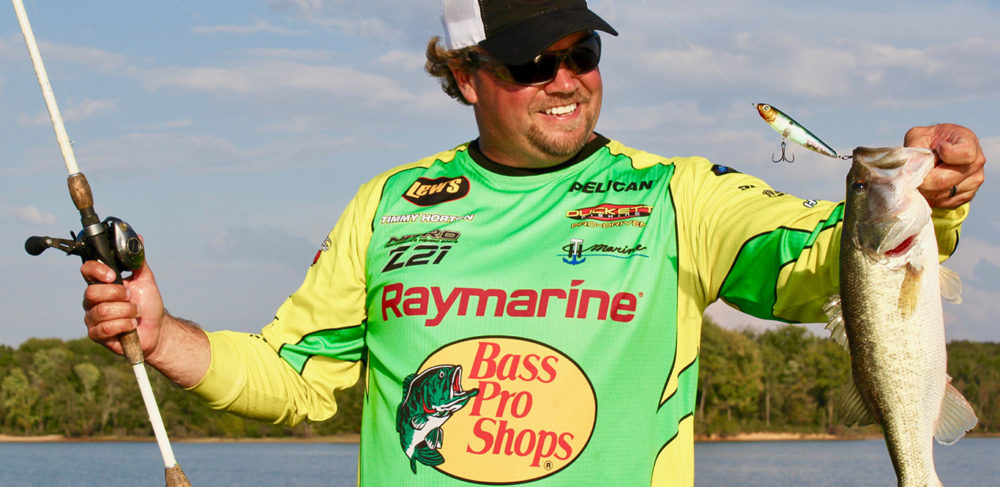Major League Fishing Format Brought Horton Back to Power Fishing Roots
MLF Pro Tim Horton shares advice on improving your confidence

Success shapes reputations, to be sure.
Fishing crankbaits far from the banks earned Tim Horton his first $100,000 payday, a Bassmaster 150 win on the Potomac River in 1999. The victory set the blueprint for his fishing for the next 10 years.
“When I went to practice for a tournament, (offshore cranking) is what I did,” Horton said.
Big catches of big fish on offshore structure have fashioned the image of the colorful Alabaman for a generation of bass fans. Yet probing the depths wasn’t always Horton’s first thought. He reminds us that all his early tournament success came from prying bass from visible cover.
“When I first started competing in my home state of Alabama on lakes like Logan Martin and Neely Henry, I did a lot of boat dock fishing, a lot of ‘target’ fishing where you are tight to the cover and have to make accurate casts, skipping jigs under docks and pontoons and things like that,” he recalled. “That was the strongest part of my game at that time, and I felt I was as good at it as anybody in my area because it was really what I loved to do and what I concentrated on.”
Dusting off his power tools
Major League Fishing competitions have brought Horton back to his roots. Finding fish in readable water is imperative in the MLF format, and continuous SCORETRACKER updates put sustained pressure to catch fish quickly and keep them coming.
In such a scenario, power fishing techniques are ever in play.
But dusting off old skills was not as easy as Horton expected.
“When I had to (pitch and flip and cast to objects) in tournaments, I wasn’t nearly as good as I had been 10 years or so earlier,” he explained. “It’s amazing. When you get away from a technique, you find that you are not nearly as capable doing it as you once were.”
Horton realized that it would take concentrated effort to resurrect his former skills.
“When I had a week or two at home, I would take a couple days and fish boat docks all day long, even if boat docks weren’t really the thing to do on the lake at the time,” he said.
Horton emphasizes that the principle works both ways, and anglers weak with deep-water techniques might take a similar lesson. If ledge fishing is a challenge, make a serious commitment to getting more familiar with your electronics and fishing deep crankbaits, football jigs, big spoons, Carolina rigs, and the like.
“When somebody asks, ‘What can I do to add to my arsenal?’ I tell them to take the thing you have the least confidence in and leave the other tackle at home,” he advised. “Don’t go to the lake with that stuff because you will be tempted to pull it out. Just work on the parts of your game that need the most work.”
Hone those skills until you’ve reached a level of performance that becomes instinctive.
“When you have confidence in something, you don’t really have to think about it,” says Horton. “You just go out and execute. You just do it.”